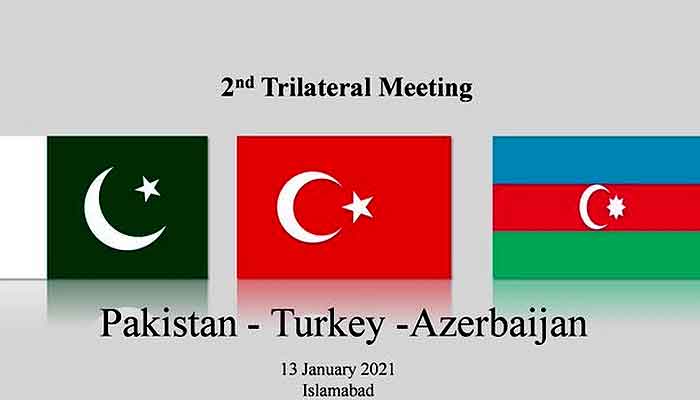Azerbaijani Defense Minister Zakir Hasanov recently announced that his nation, Pakistan and Turkey will hold a trilateral military exercise in September: “According to the order of the President of Azerbaijan, three brother countries will conduct the joint drills. Azerbaijan will host the joint military exercises of the special forces of Azerbaijan, Turkey and Pakistan.”
The three fraternal nations have been expanding the consolidation of military ties as well as the integration of geopolitical strategy in recent months to an unprecedented degree.
They recently participated in two, coterminous military exercises in Turkey, Anatolian 21 and Anatolian Eagle 2021. The first was a special operations forces exercise and the second was a series of air combat maneuvers (monitored by NATO). Participants in Anatolian 21 were Turkey, Azerbaijan, Pakistan and six states that are de facto provinces of the neo-Ottoman imperium and adjuncts of the Ankara-Baku-Islamabad axis: Albania, Kazakhstan, Kosovo, Mongolia, Qatar and Uzbekistan. (In February Turkish and Pakistani special forces engaged in the Ataturk XI-2021 exercise in Pakistan.)
In this year’s Anatolian Eagle Azerbaijan provided Sukhoi and MiG fighter aircraft of the sort used by Armenia and India, respectively, and Qatar supplied Rafale multirole fighter jets of the sort recently purchased by India and Greece. Azerbaijan, Pakistan and Turkey support each other’s claims and positions vis-à-vis Nagorno-Karabakh and Armenia, Kashmir and India, and Cyprus and Greek islands in the Aegean. The air exercises prepared the three former nations for future conflicts with the latter ones.
The day after he left the NATO summit in Brussels, Turkish President Recep Tayyip Erdoğan flew directly to the capital of Azerbaijan, Baku, whence he and the nation’s president, Ilham Aliyev, departed for the city of Shusha (Shushi in Armenian) in Nagorno-Karabakh, conquered last year by Azerbaijan with Turkish assistance. While there the two heads of state signed the eponymous Shusha Declaration pledging further bilateral cooperation almost to the point of a merger of the two nations. The document contains a reiteration of the principle of one nation, two states in relation to Azerbaijan and Turkey, a slogan Aliyev attributed to his late father and political predecessor Heydar Aliyev.
In January the head of the Pakistan Air Force, Chief Marshal Mujahid Anwar Khan, addressed the Association of Justice Defenders and Strategic Studies (ASSAM) Center, in Turkey (ASSAM is a think tank founded in Turkey to work with other Muslim countries) and asserted “Pakistan and Turkey are two countries, one nation,” which “not only share common culture and faith but also have similar interests and challenges.”
The air force chief addressed all three of the above-cited geopolitical concerns: he confirmed that Pakistan fully supports the Turkish position on Cyprus, which is for the Turkish Republic of Northern Cyprus to be recognized as an independent nation (which currently no country but Turkey does). He praised Turkey for its support to Azerbaijan in last year’s 44-day war in Nagorno-Karabakh. And he condemned India over Jammu and Kashmir, a position fully backed by Azerbaijan and Turkey.
In the same month the foreign ministers of Azerbaijan, Pakistan and Turkey met for the second time in a trilateral format established in 2017. A declaration was issued afterward which spoke of solidarity with Azerbaijan in regard to “liberated territories” in Nagorno-Karabakh, gratitude to Pakistan for its role in Afghanistan, support for Pakistan’s position on Kashmir, and backing for the Turkish approach to a “settlement of the Cyprus issue, as well as the issues in the Aegean and the Eastern Mediterranean.”

Turkey is NATO’s second-largest member state in terms of population and the size of its armed forces. Pakistan is its largest partner, a founder of the Partners Across the Globe and a nuclear power. Azerbaijan was one of the first nations to join a NATO partnership (the North Atlantic Cooperation Council in 1992), is a current member of the Partnership for Peace and has supplied the military bloc with troops for its missions in Kosovo and Afghanistan. It also has an army trained for NATO interoperability by Turkey. Combined, the three states have a population that rivals that of the U.S. Geostrategically, they’re positioned far more critically, from Europe to the Chinese border.


